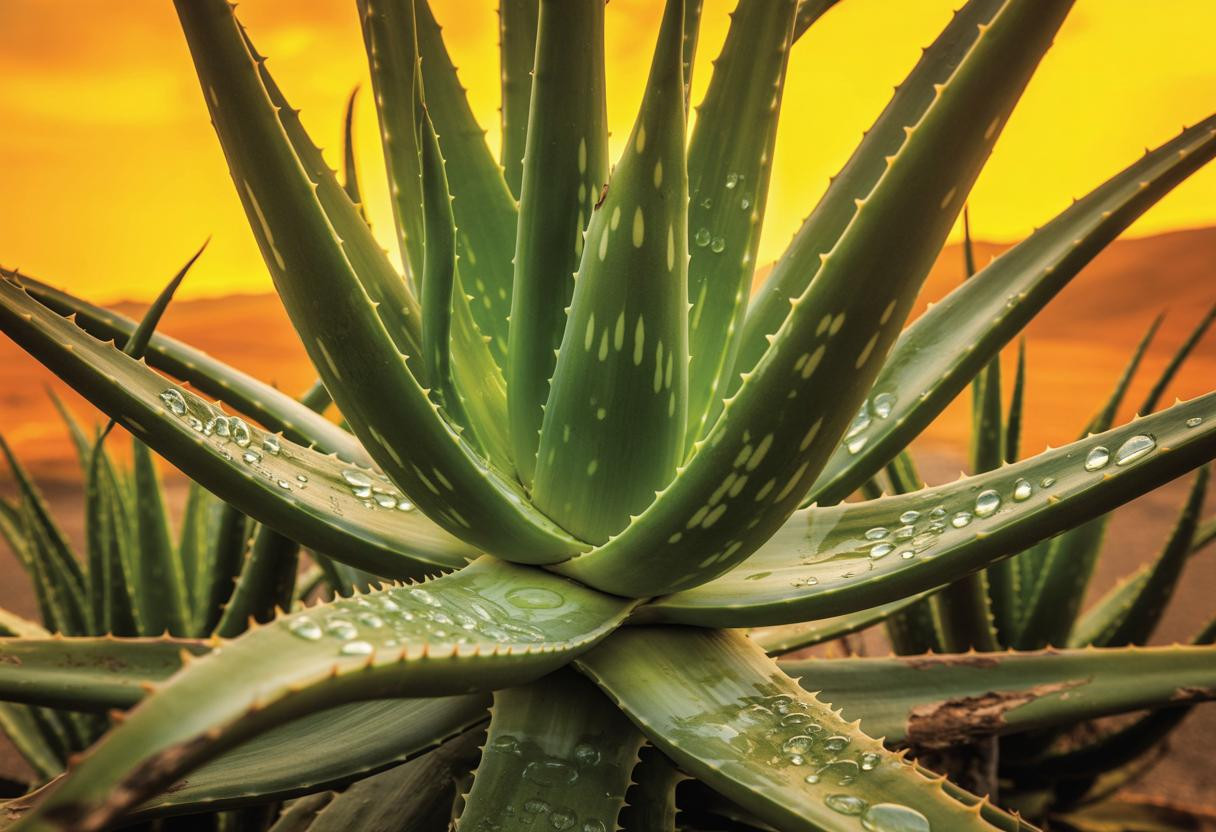A growing number of health-conscious individuals are discovering that adding fresh aloe vera gel to water during heat waves provides superior hydration benefits compared to traditional sports drinks, while simultaneously delivering unexpected therapeutic compounds that support your body’s natural cooling mechanisms.
Recent research reveals that aloe vera’s unique polysaccharide composition acts as a natural humectant, helping your body retain moisture more effectively than plain water alone. This ancient plant, now backed by modern science, offers a compelling alternative to sugar-laden beverages during extreme heat conditions.
The surprising science behind aloe vera hydration mechanisms
Unlike conventional hydration methods, aloe vera contains specialized compounds that enhance water retention at the cellular level. Studies demonstrate that aloe’s polysaccharide-rich composition increases moisture retention in the stratum corneum by 23% more effectively than standard topical applications.
When consumed as aloe-infused water, you’re getting approximately 10 calories per 8-ounce serving with zero added sugars, making it a healthier alternative to sports drinks. However, one critical limitation emerges: aloe water lacks essential electrolytes like sodium and potassium that your body desperately needs during heat waves.
This nutritional gap means that while aloe water provides effective low-calorie hydration, it shouldn’t completely replace electrolyte solutions during extreme heat exposure. The key is understanding when and how to use it strategically.
Hidden risks that most people completely overlook
The anthraquinone concern nobody discusses
Here’s what manufacturers rarely mention: certain aloe preparations contain anthraquinones, compounds that can trigger significant digestive distress and potentially dangerous electrolyte imbalances. The FDA actually banned aloe latex in over-the-counter laxatives due to safety concerns.
This hidden risk becomes particularly dangerous during heat waves when your body is already stressed. Similar to how food safety considerations are crucial for raw foods, proper aloe preparation requires using only the inner gel, completely avoiding the latex-containing outer layer.
Long-term consumption warnings
While short-term use appears safe for most people, consuming aloe water daily during extended heat periods hasn’t been thoroughly studied. Some research suggests potential liver toxicity risks, though evidence remains inconclusive.
Just as artificial sweetener health impacts took years to fully understand, the long-term effects of regular aloe consumption require more comprehensive research.
Smart strategies for maximum heat wave protection
The most effective approach combines aloe water with proven electrolyte replacement strategies. Limit aloe water consumption to 6-8 ounces daily and pair it with oral rehydration solutions containing sodium and potassium.
For individuals over 60, this becomes even more critical since dehydration risks increase significantly with age. Consider how essential vitamin supplements for seniors play a role in overall health maintenance during extreme weather conditions.
The counterintuitive preparation method that changes everything
Most people assume any aloe product works equally well, but preparation method dramatically affects both safety and effectiveness. Fresh inner gel extraction produces the safest results, while commercial products vary wildly in quality and anthraquinone content.
Purchase whole aloe leaves, carefully remove the outer skin, and blend only the clear inner gel with filtered water. This method eliminates latex-related risks while preserving beneficial polysaccharides.
What the research actually reveals about effectiveness
Current scientific evidence shows mixed results for aloe’s hydration claims. While topical applications demonstrate clear skin moisture benefits, systemic hydration through oral consumption lacks robust clinical validation.
The most promising research focuses on aloe’s role in blood sugar regulation and anti-inflammatory effects rather than direct hydration benefits. This suggests aloe water works best as a supplementary strategy rather than a primary heat wave defense.
Making informed decisions about your heat wave strategy
Aloe vera water offers modest benefits as a low-calorie hydration supplement during heat waves, but shouldn’t replace proven electrolyte solutions. Its primary value lies in providing hydration without sugar spikes while delivering potential anti-inflammatory compounds.
The smart approach? Use aloe water strategically as part of a comprehensive heat management plan that includes proper electrolyte replacement, adequate shelter, and medical monitoring during extreme conditions. Your safety depends on understanding both the benefits and limitations of this ancient remedy in modern heat wave scenarios.
